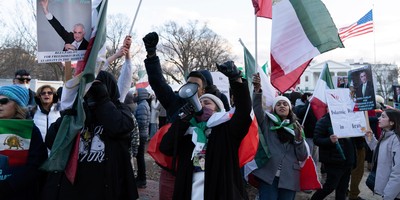Mexican drug violence is decentralized, discombobulated and dangerous. Unfortunately, the recent U.S. response to Mexican drug violence can be characterized in exactly the same way.

On Wednesday, President Obama announced that he would consider deploying the U.S. National Guard if violence escalates, and House Republicans called for the expansion of Operation Jump Start, a program that put the Guard in Texas from 2006-2008. Thursday, the House held two hearings and will hold another next week to discuss the Mexican threat. In February, Texas Governor Rick Perry asked for more troops to defend his state’s southern border.
Yet Perry has come out against a border fence and has a reputation for being lax on immigration. House Republicans were partially responsible for the de-funding of another Mexican security initiative, Operation Meridia, last year, taking $100 million away from the $500 million originally allocated for the program. They have not addressed why they think the Jump Start program will be more effective in reducing hostilities. And the House committee hearings are unlikely to result in any action items.
Obama has not only appointed a no-name “drug czar,” Gil Kerlikowske, to combat drug violence, but actually demoted Kerlikowske before he even started, by removing his post at the head of the Office of National Drug Control Policy from the official Presidential cabinet. White House officials insisted that the removal had nothing to do with the decreased authority of the post. But combined with Kerlikowske’s lackluster background – Seattle Police Chief – it certainly looks like the President is ramping down the importance of the point man on drug issues.
Recommended
More importantly, the effectiveness of any potential military action is uncertain. Ray Walser, Senior Latin American Policy Analyst at The Heritage Foundation, says putting National Guard troops in Texas via the Jump Start initiative may be putting a band-aid on what is a much more deep-seated situation.
“What would their capability be? They can’t do law enforcement,” said Walser. “The way to do this is to get more law enforcement assets for the challenge -- to investigate arms shipments and the like. And to continue to work with the Mexican officials who are pursuing this.”
Walser said the Meridia initiative was probably the best route, given its collaborative approach with local Mexican law enforcement, instead of Jump Start’s detached patrols. But Ted Galen Carpenter, vice president for defense and foreign policy studies at the Cato Institute, said that the type of action did not matter, given the demand for drugs in the U.S.
“The arrests and killings of numerous top drug lords in both Colombia and Mexico over the years have not had a meaningful impact on the quantity of drugs entering the United States. Cutting off one head of the drug-smuggling Hydra merely results in more heads taking its place,” he said in a February policy paper.
The oft-cited figure of 7000 drug-related deaths last year consists almost entirely of Mexican citizens, with no reliable resource to track American deaths as a result of the Mexican violence. Still, American deaths do occur, and many fear they may increase as the conflicts escalate.
Rep. Loretta Sanchez, (D-Calif), chairwoman of the Subcommittee on Border, Maritime and Global Counterterrorism, said that she had seen an influx of violence into the United States.
"Well, it certainly has always been a problem at the border, but in the last couple of decades, it's gotten even worse. Now we see some spillover, just a little bit, coming into the United States," she told CNN's "American Morning.

























Join the conversation as a VIP Member